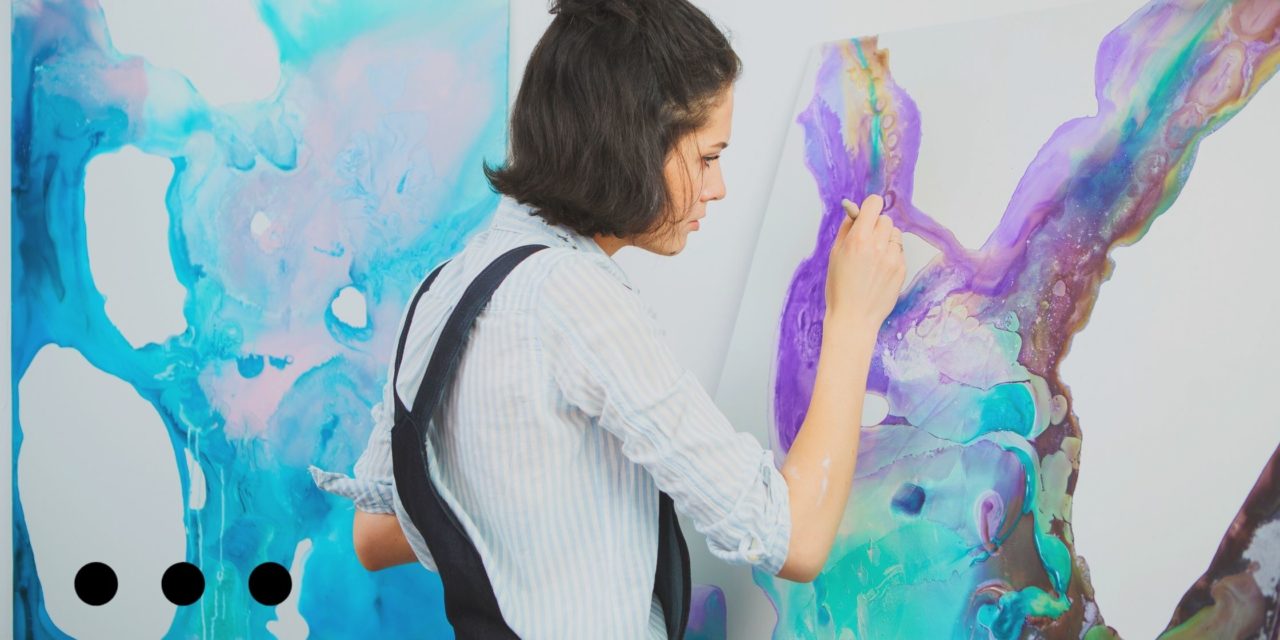As First Lady, Lady Bird Johnson, once said, “Art is the window to man’s soul”. This form of self-expression has been utilized since before the beginning of civilization (cave paintings, anyone?) and has played an important role in shaping cultures and influencing society. However, art has also been found to be an effective tool in addiction treatment. Evidence-backed by science, here’s what art therapy for addiction recovery is and why you might want to consider it.
Art Therapy for Addiction Recovery: What Is It & How Does it Work?
Art therapy was a concept that was developed in England in the early 1900s. It was popularized in the U.S. by Margaret Naumburg in the 1940s and was shortly after implemented by the Veteran Administration as a way to help the returning soldiers from World War II process their experiences. It is a straightforward concept that uses the creative process as a means to help individuals heal mentally and emotionally, and is able to do so in many ways. Art therapy is a coping strategy, a way to restore a sense of control, and of course, a means of expression. Each of these functions serves a role in aiding the recovery process.
Findings from an article in the Art Therapy: Journal of the American Art Therapy Association showed that this modality was extremely effective at lowering resistance to addiction treatment–a monumental discovery considering that enthusiasm and motivation is one of the most consistent indicators of success in a treatment program. Art therapy is particularly well-suited for those who did not take to a 12-Step program.
There is no restriction on the type of medium or activity that qualifies as art therapy. Coloring, drawing, painting, sculpture–any form of the visual arts can provide the benefits of art therapy for addiction recovery. Each allows the individual to express themselves, and have a visual representation of something they have accomplished.
The Benefits of Art Therapy
Art therapy provides a healthy emotional outlet that can be useful for:
- Working through unresolved feelings and emotions
- Allowing individuals to communicate nonverbally with their practitioners
- Providing positive distractions, an important aspect of relapse prevention
- Stress relief which can help prevent cravings or a desire to use drugs again
- Boost self-esteem and make them feel in control
The benefits can also be seen in other expressive art forms such as music, theater, or poetry. However, like most other forms of alternative addiction treatment, it is most effective when it is a part of a comprehensive treatment program that includes therapy and counseling, and other core services.
Art Therapy Activities for Addiction Recovery
Whether you are enrolled in an addiction treatment program or not, you can still get the benefits of art therapy at home. There are all sorts of art therapy projects for recovering addicts that can be done anywhere and will not require any previous experience, buying expensive materials, or evening being “good” at it. It is as simple as putting pen, marker, or brush to paper–or whatever other materials or mediums that you already have available to you! Here are a few ideas of types of art projects you can start:
- Collages
- Self-portrait
- Landscape
- Greeting/thank you cards
- Jewelry
- Visual timeline
If you’ve never dabbled in the visual arts before, getting started could seem intimidating. One way to give yourself some direction is to use some common themes in addiction recovery.
- Then and Now: Using your materials of choice, create a depiction of yourself in a before and after. It could be before you got help for substance abuse and reflecting on how you feel about yourself after working towards sobriety. It could also involve how you saw yourself before drug use and how it transformed you during addiction.
- Your Ideal Future: Depict the future you hope to have after overcoming addiction. You could also break it down into specific time increments (6 months, 1 year, 5 years) to help you visualize the stages along the way towards your ultimate goal.
- Things That Inspire You: What better way to stay motivated than depicting all of your favorite things that move you in some way. These can be hobbies you enjoy, loved ones who depend on you, or people you admire. In the 12 Steps, these would be your Higher Power.
- Affirmations: Center your creation around a phrase, quote, or lesson that resonated with you. Use your art piece to be a physical representation of something meaningful and help keep you on track.
As praised as art therapy is, it’s not available at all addiction treatment facilities. Currently, only about 36% of drug rehabs offer it as a part of a treatment program. Find drug and alcohol rehabs near you today and inquire about art therapy.
Sources:

